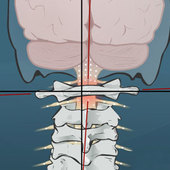
Your nervous system influences each of the trillions of cells that make up your body. When there is an imbalance in how your nervous system is communicating with your body, it can result in a condition called Dysautonomia, which is characterized by rapid heart rate, digestive issues, light-headedness, and brain fog. With October being Dysautonomia Awareness Month, we released several facts about what happens to your health when your brain is not functioning properly. Now I would like to explore what you can do to keep your brain functioning at its peak.
- Eat More Healthy Fats
Were you ever called a ‘fathead’ as a kid in the form of an insult? Inadvertently, you may have actually been given a compliment! Your brain is composed of approximately 60% lipids (fat), and essential fatty acids such as Omega-3s are critical for proper brain development and function. Lipids make up the white sheath (called myelin) that surrounds certain nerve cells; myelin is responsible for insulating the nerve cell and speeding up its transmission of messages. It is this fatty covering of the nerve cells that enables you to feel someone touching your hand or allows you to swat a fly with little to no thought.
Essential fatty acids cannot be made by the body and must be acquired through the diet. Some good sources of Omega-3 Fatty Acids include cold-water fish (mackerel, salmon, herring, cod), walnuts, flax seeds, and chia seeds.
- Drink More Water
Everyone knows the importance of staying hydrated during a heat wave to avoid dehydration, however, on an average day most people do not think about their water intake. You do not have to be in the midst of the summer heat to experience dehydration, in fact, by the time you feel thirsty enough to drink some water you are usually already slightly dehydrated. Interestingly enough, your body composition is actually two-thirds water, and when it becomes dehydrated there may be changes in cognition such as increased fatigue, trouble concentrating, brain fog, and difficulty with memory. With prolonged dehydration, there may be sensations throughout the body such as muscle stiffness or cramps, and light-headedness.
How do you know how much water to drink? As a general rule of thumb, I like to suggest that you take your body weight (in lbs) and divide it by two. This is the number of ounces of water you should consume every day. To help with this math, there are 8 ounces in one cup and approximately 4 cups in a litre. For example, let’s take a 160 lb person:
160/2 = 80 80 ounces/8 = 10 cups 10 cups/4 = 2.5 L
Therefore, an appropriate amount of water for an individual weighing 160 lb is 2.5L (10 cups) of water/day.
- Exercise the Body and Mind
Get your blood pumping! Regular exercise helps improve circulation and the delivery of oxygen and nutrients not only to our muscles, but also to our brain. Your brain is one of the most energy-expensive organs in your body and uses up to 20% of your daily energy intake. Studies have shown a correlation between increased aerobic exercise and improved memory and cognitive processes. Physical exercise also helps to improve waste removal through increased lymphatic drainage, can help to reduce stress and inflammation, and promotes a better night’s sleep, all of which are critical to optimal brain function. Furthermore, your brain needs to be exercised as well. Doing simple cognitive tasks such as reading a book, playing board games, or learning a new skill can help to improve memory and mental alertness.
- Calm the Inner Chaos
Despite the pride you may have for your ability to multitask, what you are actually doing is creating inefficient neural circuits which results in a higher degree of internal stress. Turn off your notifications and pop-ups and work to focus your mental attention on the task at hand. You can work to train your mind, and in effect control fluctuations in the stress levels mediated by your nervous system through practices such as breathing exercises, Tai Chi, meditation, and mindfulness techniques. All it takes is a couple of minutes a day to notice your productivity and clarity of mind increase!
When in doubt, ASK!
If you are wondering how your daily habits or how physical or mental stress may be influencing your brain function, ask one of our doctors for their advice. Neurological changes occur all throughout life, and it only takes a few positive action steps to help strengthen and promote healthy brain function!
Resources
https://www.ncbi.nlm.nih.gov/pubmed/20329590
https://www.ncbi.nlm.nih.gov/pmc/articles/PMC3951958/

Dr. Michelle Speranza
NUCCA Chiropractor
The Vital Posture™ Clinic
Calgary, Canada




